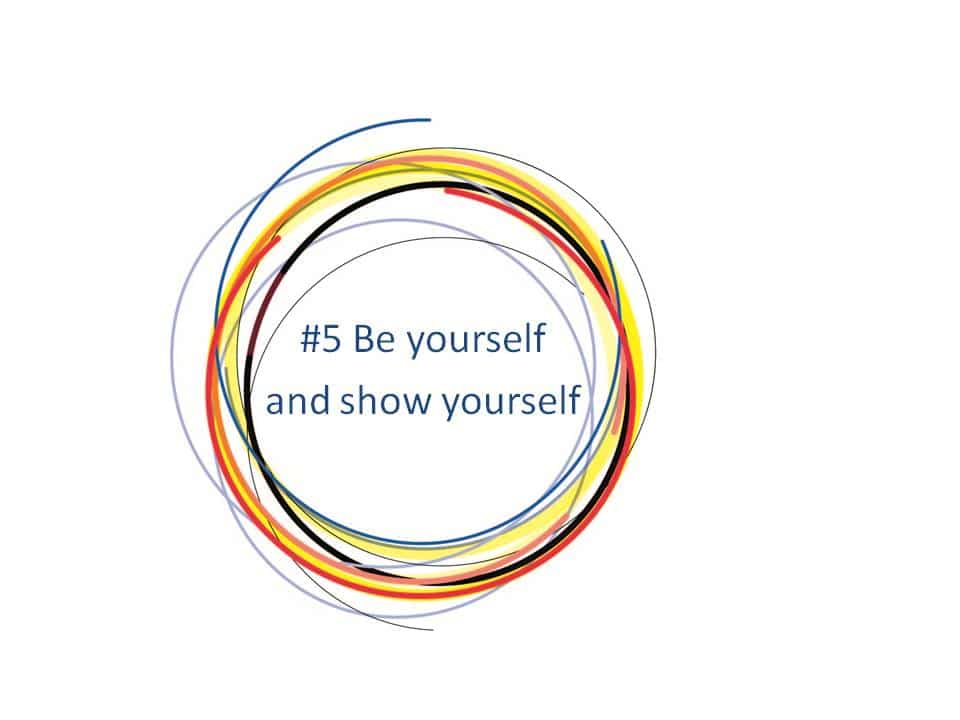At ELP, we work with The Ten Commandments of Dialogue. The fifth is about being yourself and showing yourself. That is easy but not simple. Many people are used to showing up with a mask at their work, being who they think others want them to be or trying to be as they think they should be. Being yourself implies dropping the mask and the corporate shield. It means saying or asking things that you find difficult to say or ask, of which you are afraid others will find them stupid or crazy. It means to minimize the gap between the personality that you choose to show to the world and who you really are, between your outside behaviour and your inner core.
Most people feel a great desire to be and show who they are. It is a basic human need to become acquainted with our fundamental nature, although it sometimes feels more attractive to be blissfully unaware. As said earlier, being who you really are is not simple. It is not about the color of your hair, your eyes or your skin. It is not about being tall or short, fat or skinny. These things only relate to your body and you are more than your body. Are you your feelings? Are you happy, sad, angry, joyful, touched or irritated? You might be. But though you have feelings, your feelings are not who you are either. You are more than your body or your feelings. Your experiences also contribute to who you are: were you happy as a child, did you feel loved by your parents, did you have to take care of adults at a young age? It is all relevant, but you are not equal to your historical self. Nor can you be reduced to your thoughts, desires, talents, drives or sexual preferences. You have all those things and they are part of you, but even put together they do not entirely encompass who you really are.
So be yourself and show yourself implies bringing all this that is you to the table. ELP meetings are about the individual in his or her professional context. Participants will get the best responses and learn the most if they are willing to open themselves. They can only take something away from the conversation if they give first. At ELP, it’s more about who you are than about what you do.
This also applies to the speakers. Speakers will address a topic that keeps them awake at night, something that hasn’t been solved yet but which is still very much an issue in their work. When speakers truly reveal themselves, it opens up a space which allows for greater depth in the Roundtable dialogues.
Being yourself implies giving space to other participants to be who they are. There is nothing about the participants that ELP wants to change, neither their views nor their behavior. It would adorn participants to apply that same attitude. Participants don’t have to go deeper than they want nor act differently. ELP is not a consultant or coach. It’s up to the participants themselves to use the insights that they gain at an ELP Leadership Dialogue in a time and manner that suits them. ELP won’t check on people to see if they’re applying their key insights in their daily work.
Source : European Leadership Platform


